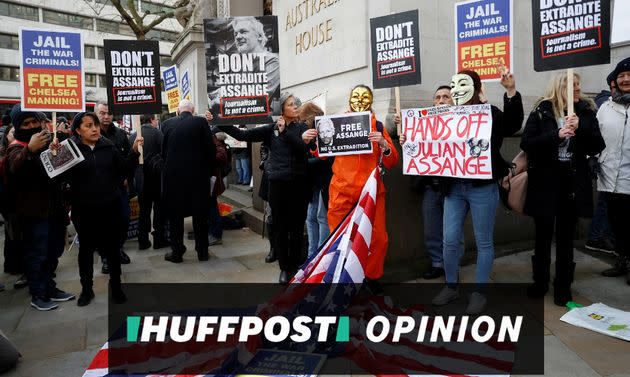Now Is The Time To Defend Julian Assange. Even If You Don't Like Him

Most people reading this will not be fans of Julian Assange. I’m not a fan, and I had plenty of opportunity to form a thorough opinion of him: I worked at WikiLeaks for a few months, and even shared a house with him for a portion of that time.
Many of the criticisms levelled at Assange are entirely fair: he can be arrogant, high-handed, a terrible house-guest, and even a narcissist.
On another level entirely, he managed never to face questioning in Sweden after facing allegations of rape and sexual assault (which he denied). He was granted bail, took every possible appeal up to the UK Supreme Court, and then fled to the embassy of Ecuador when proper judicial procedure went against him.
Years of running down the clock worked – with only months left on the statute of limitations, and with only the most serious allegation left, Sweden gave up on its investigation.
The women who, way back in 2010, accused Assange of sexual assault and rape will never get their day in court, despite having faced horrific online abuse and harassment, to the point of forcing them into hiding and into adopting false identities.
We do not get to pick our figureheads – and it’s in cases exactly like this that our freedoms are challenged.
Assange, then, does not cut a sympathetic figure now that he’s facing a new extradition attempt – this time to the US. This is a problem, because as little as many of us may care about Assange himself, this prosecution is political, illiberal, and a threat to free speech and government accountability.
Assange is facing extradition to the US over his work with WikiLeaks to obtain and publish classified US military and diplomatic documents in 2010. The revelations from these documents made headlines and led news bulletins across the world.
They included the now-famous “collateral murder” video, which showed a US Apache helicopter in Iraq gun down a group of suspected militants, later found to include civilians and Reuters journalists, before...


